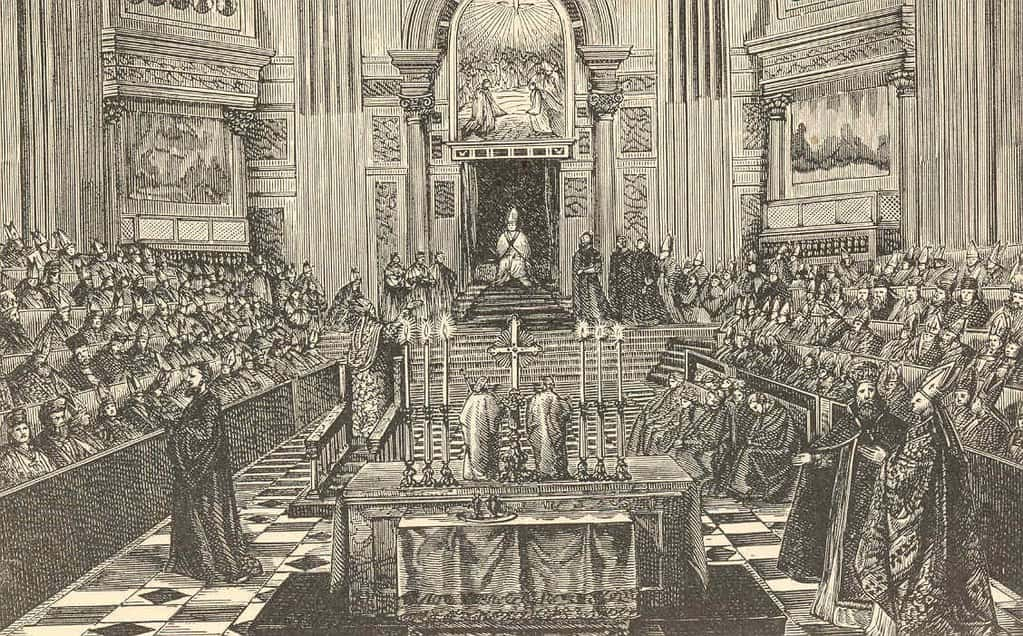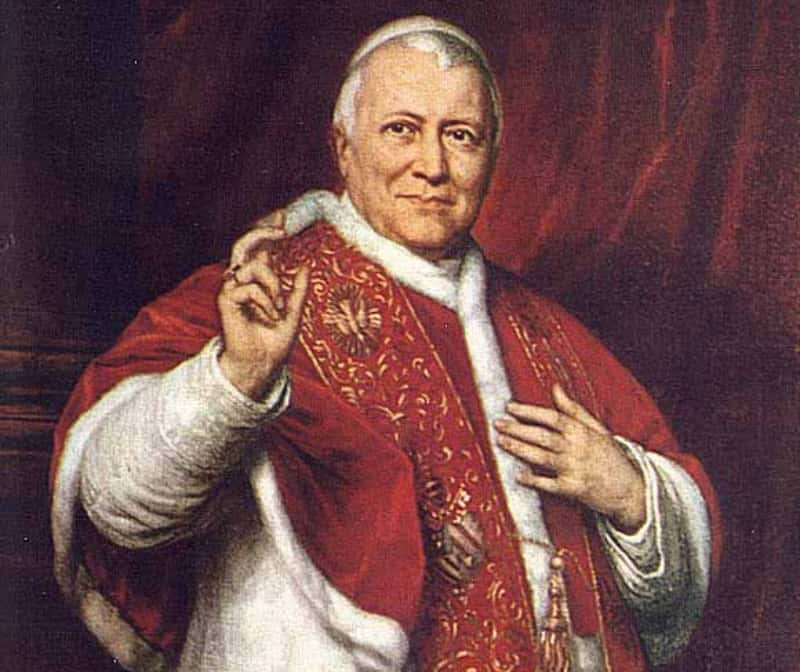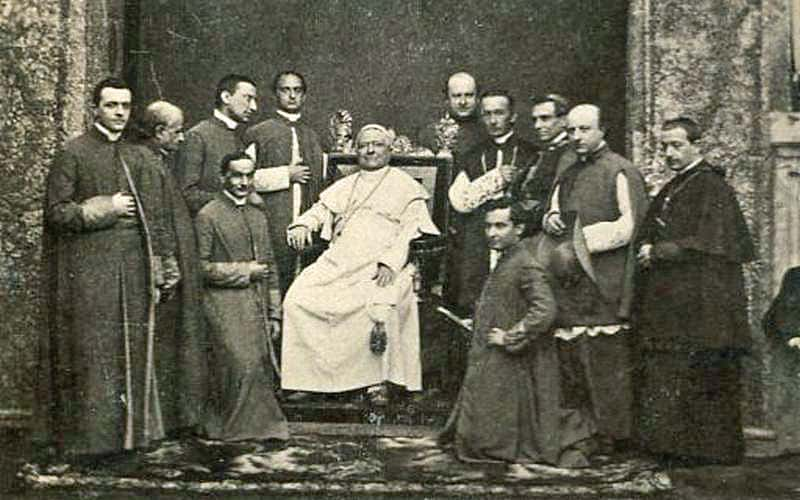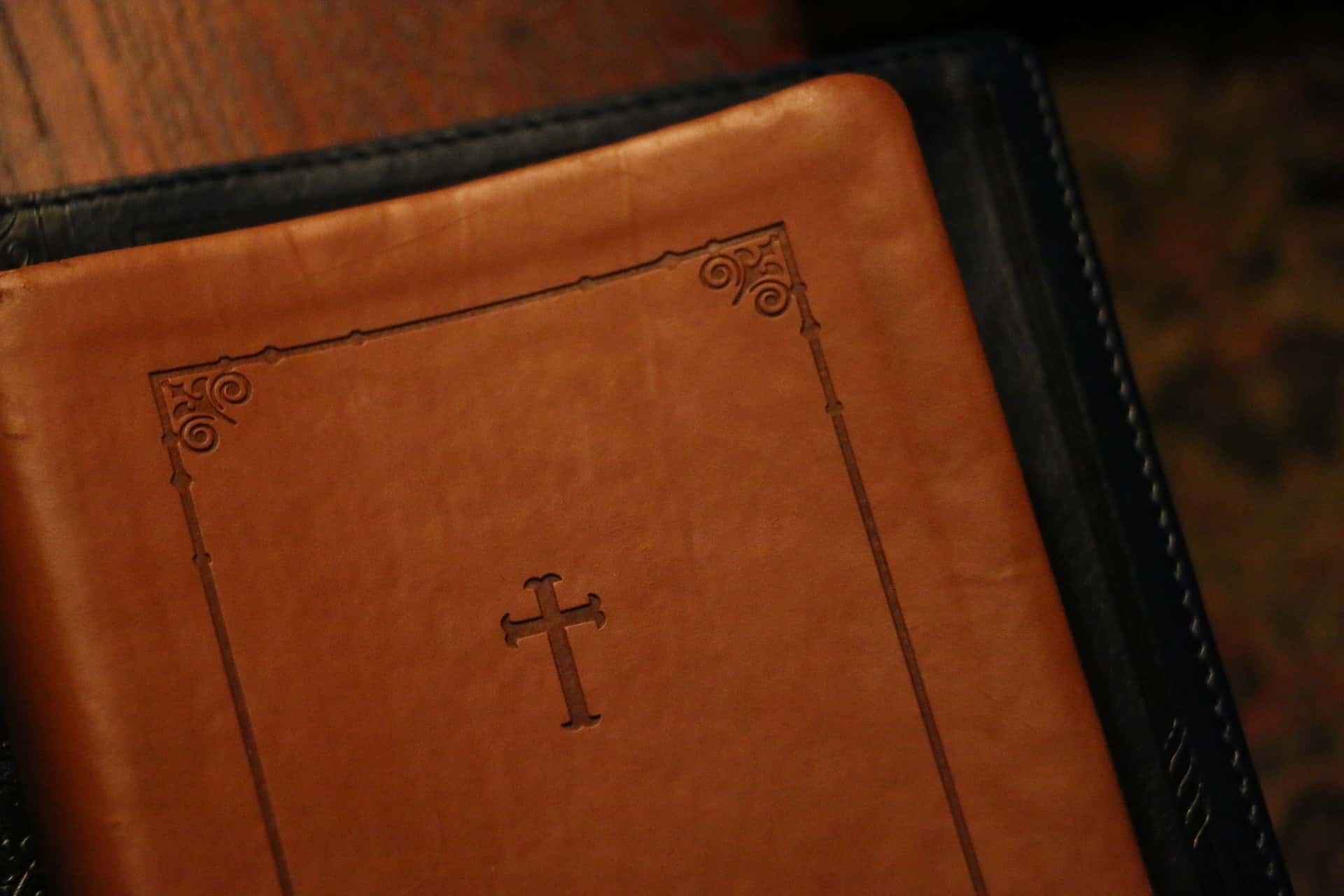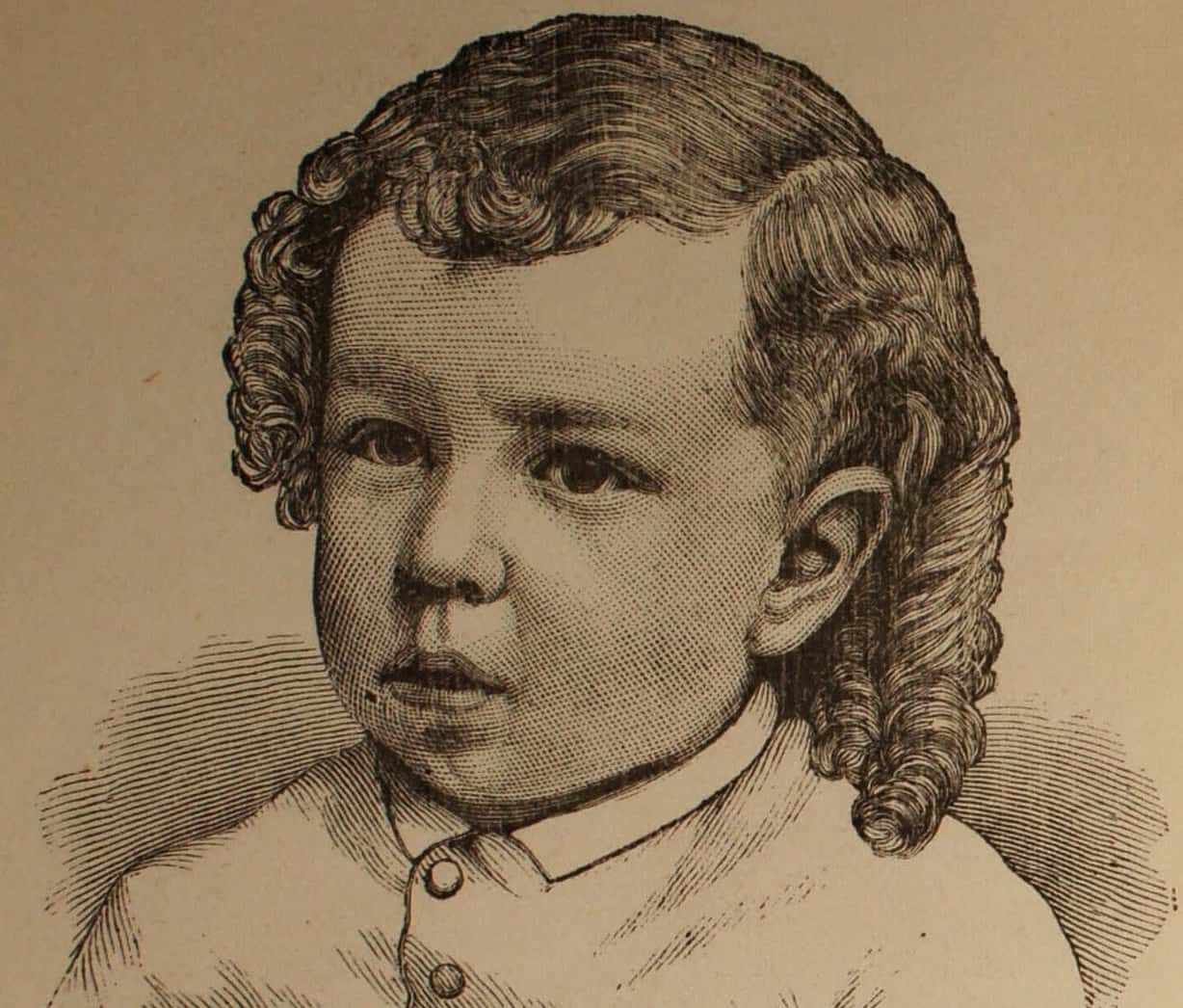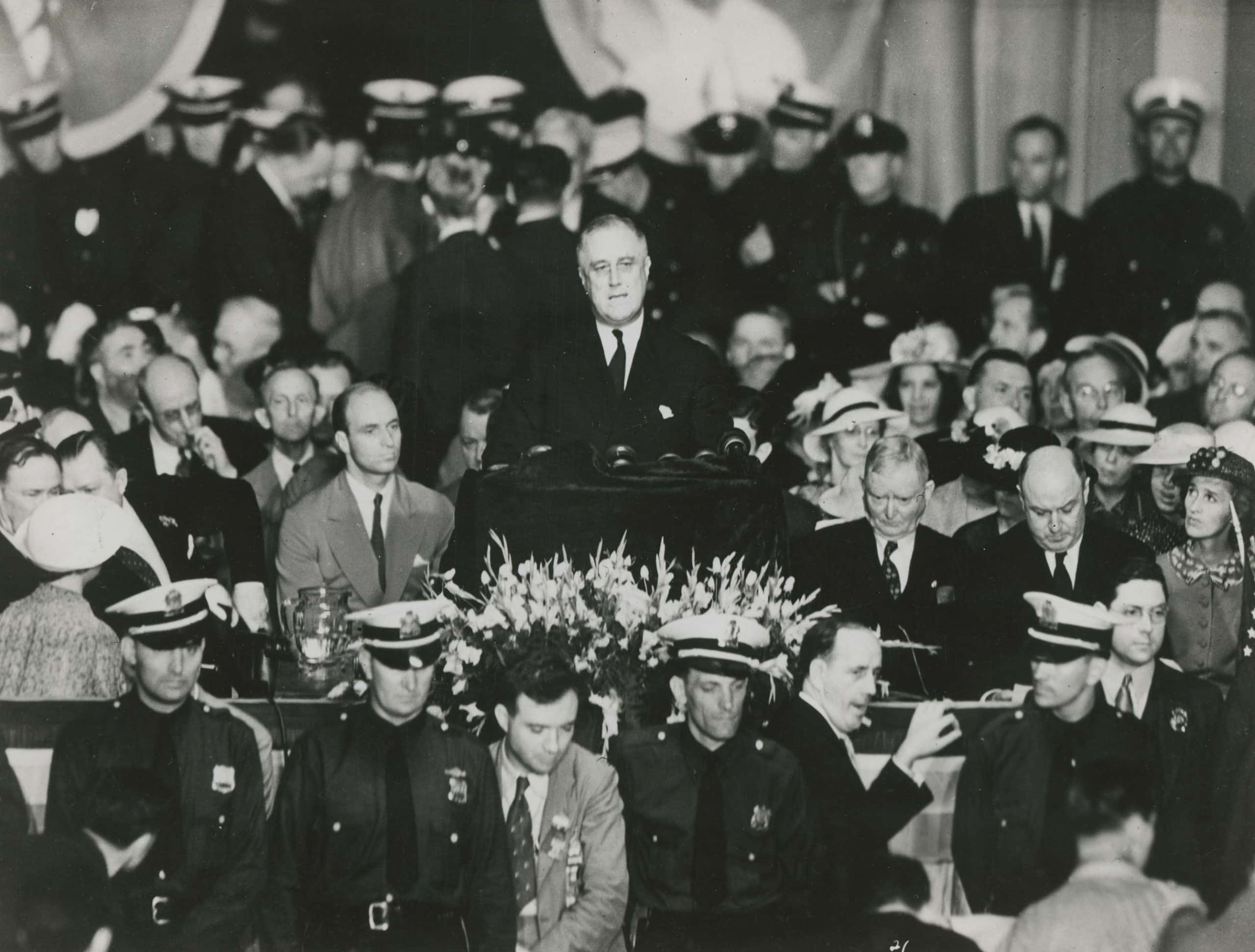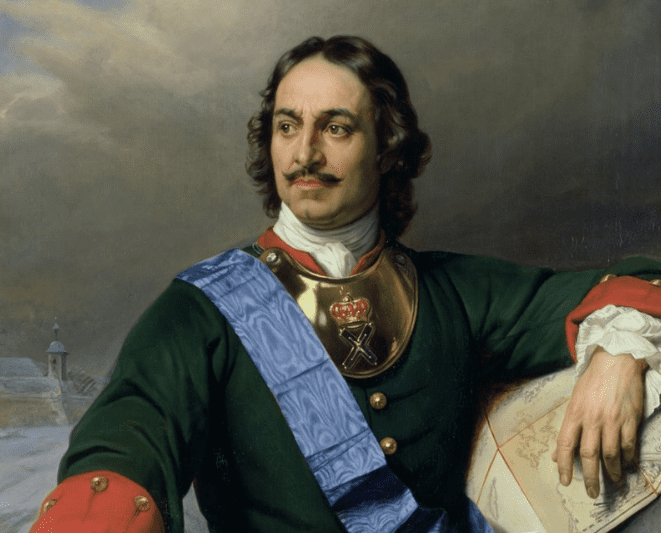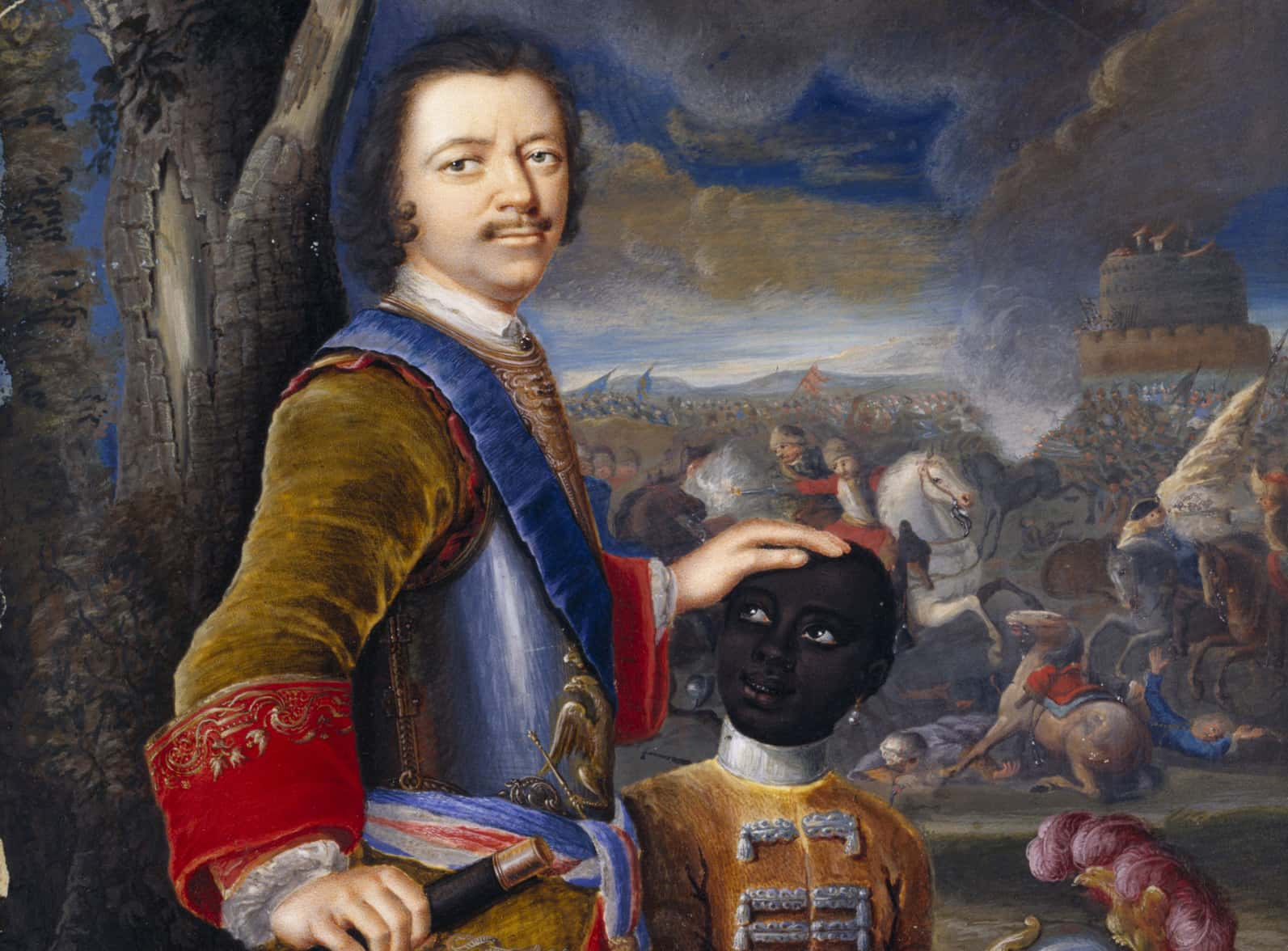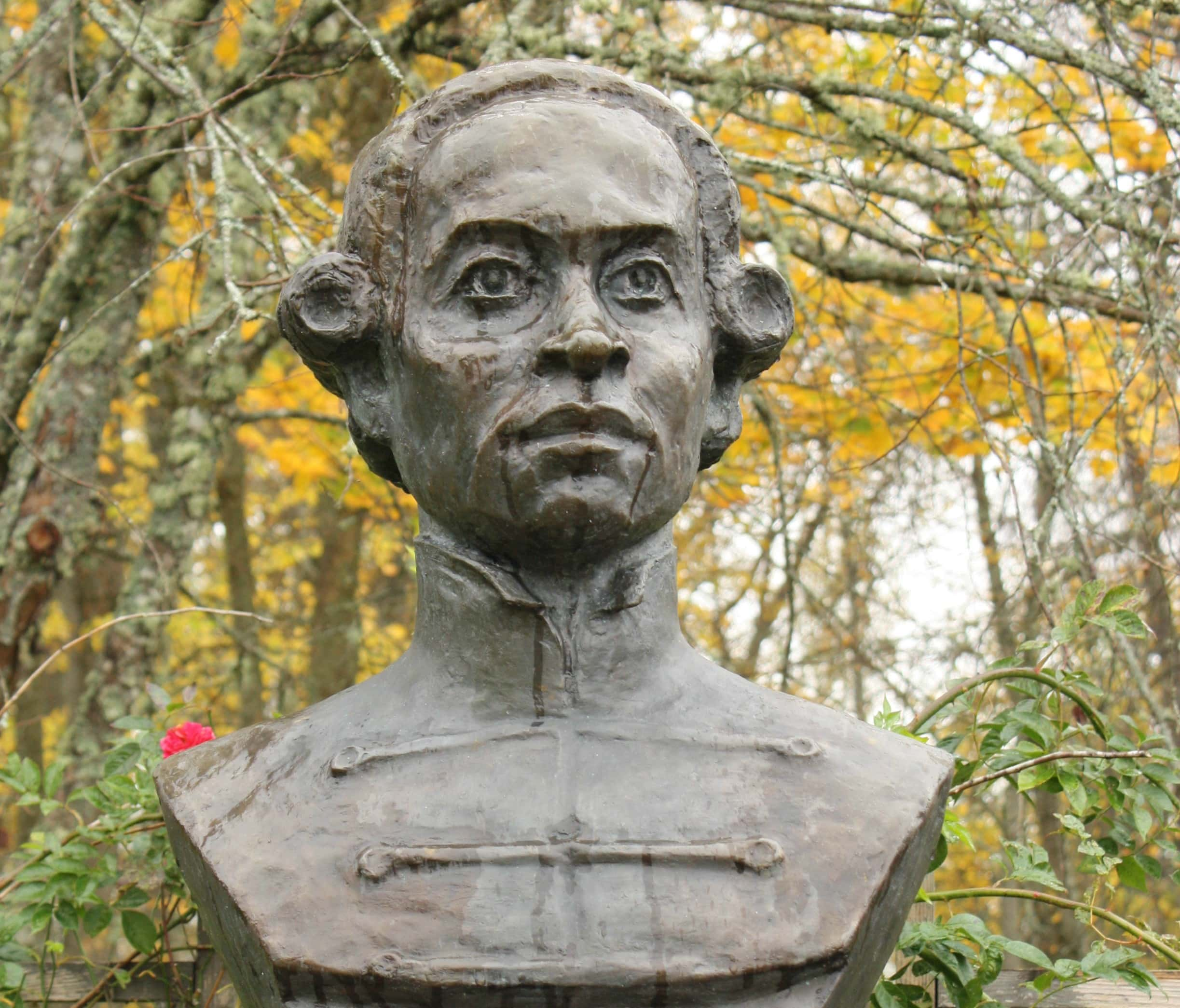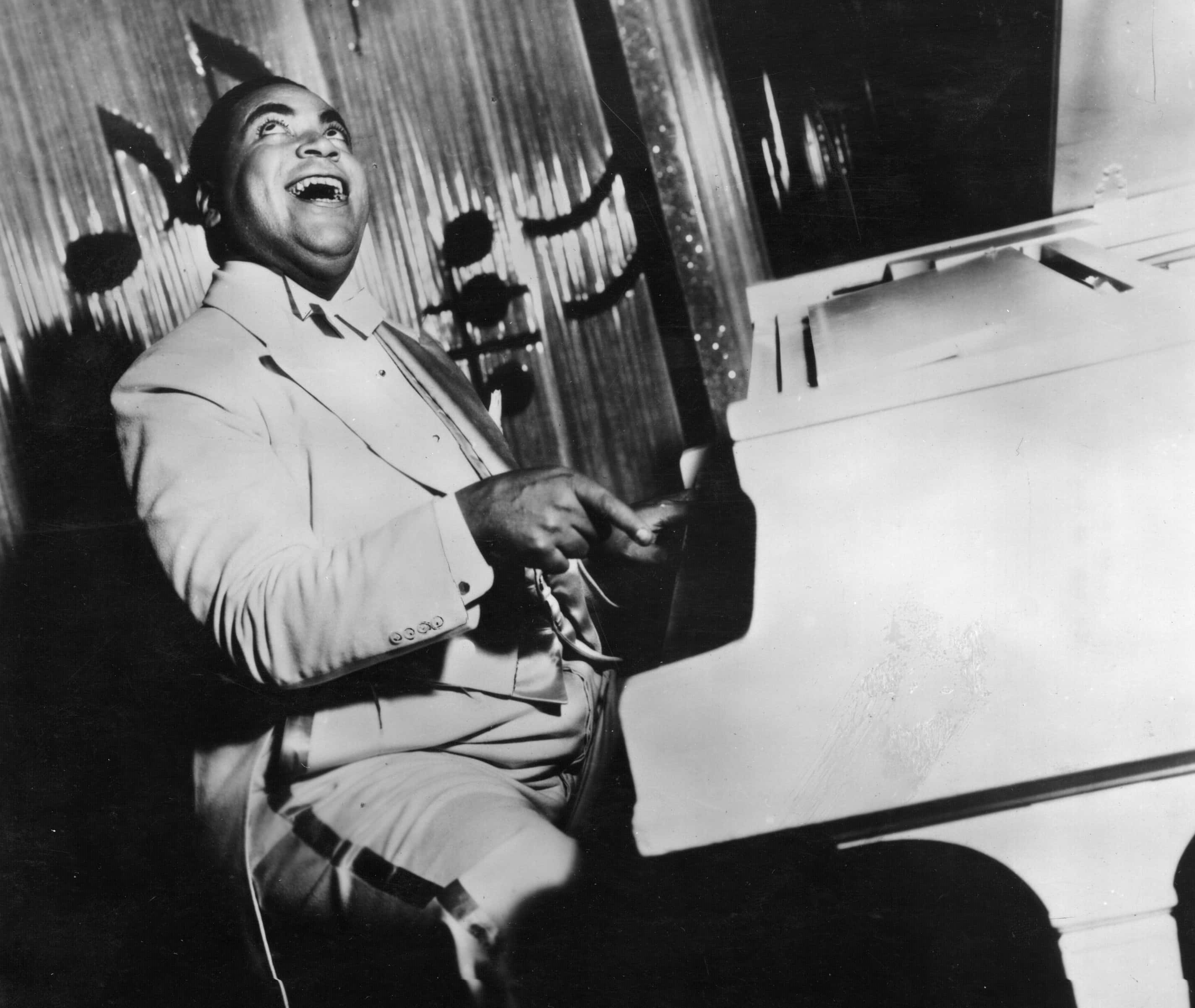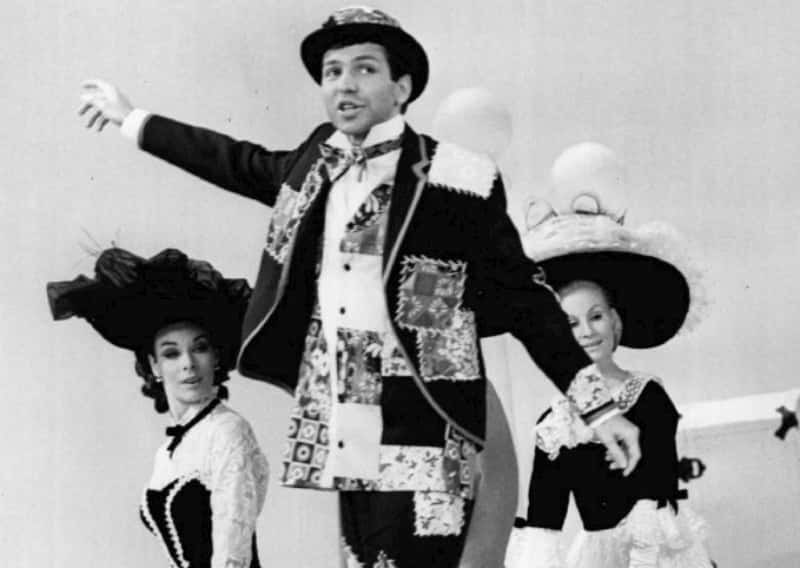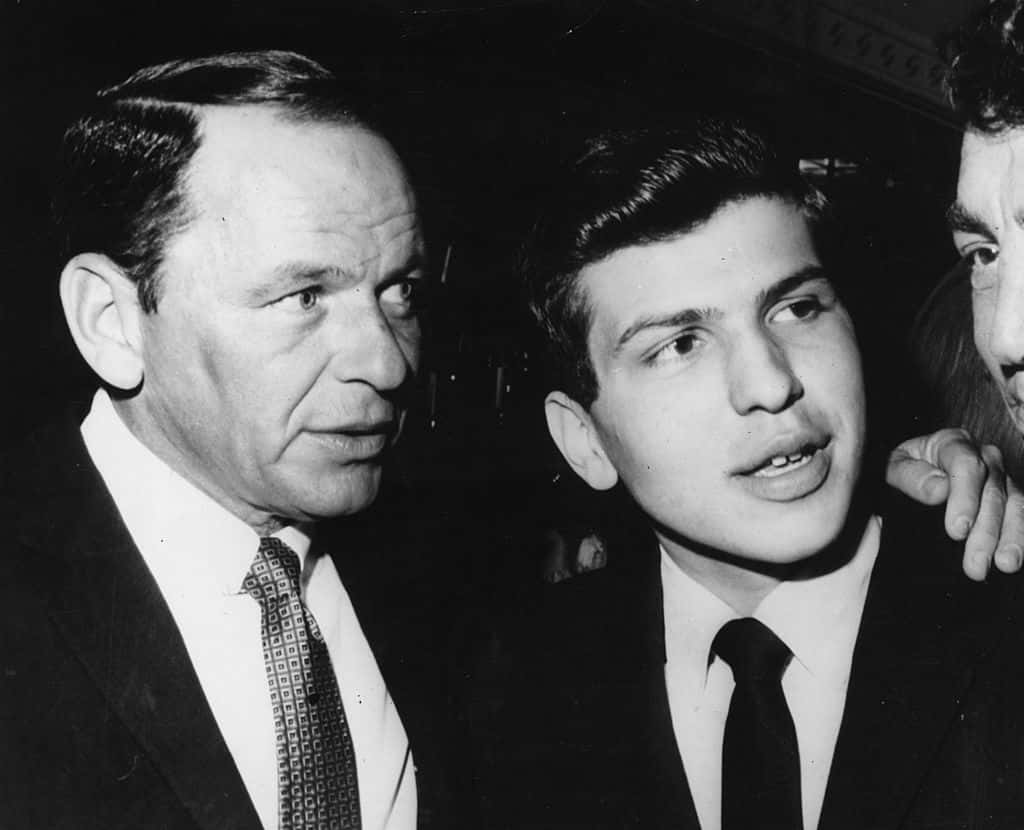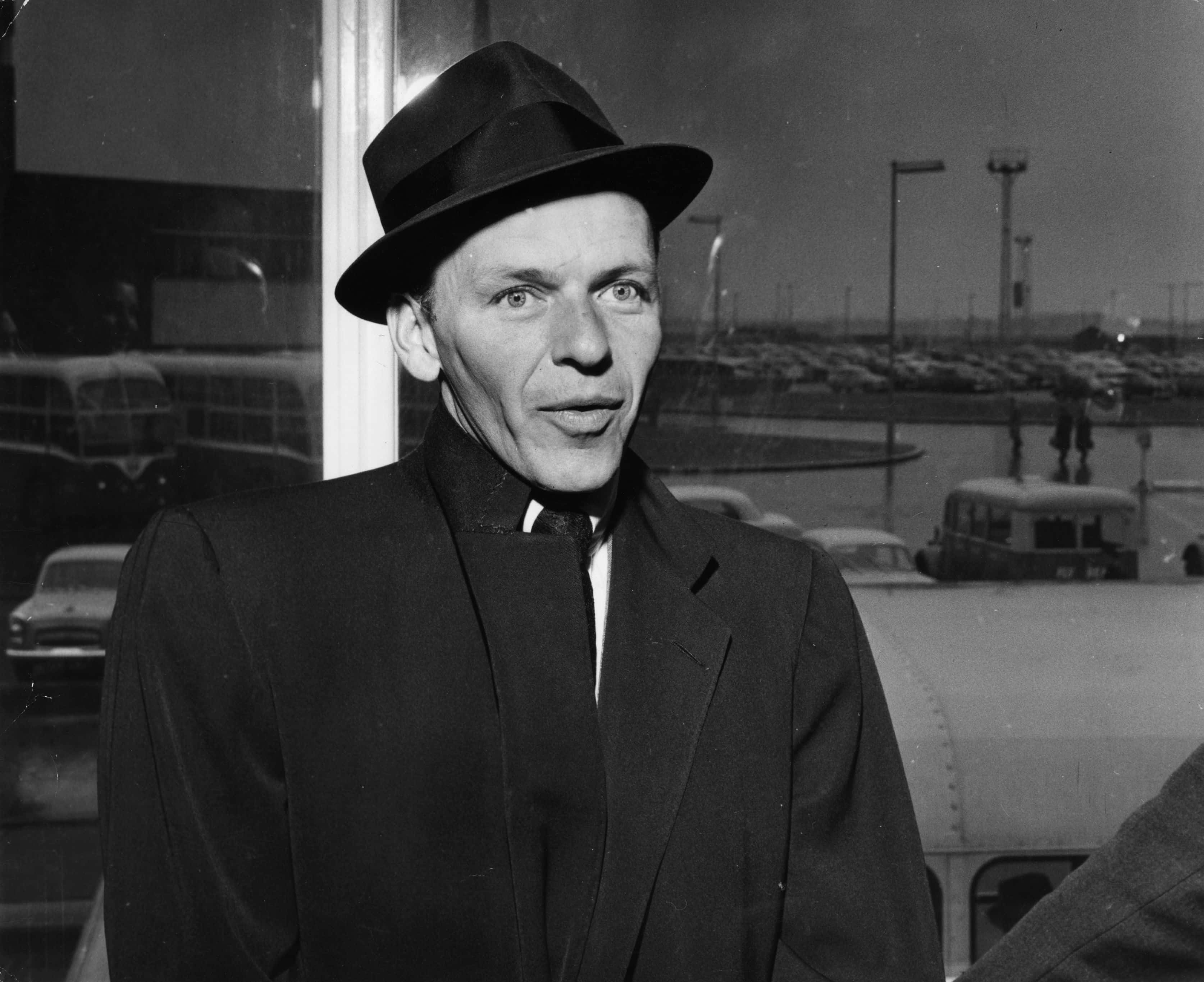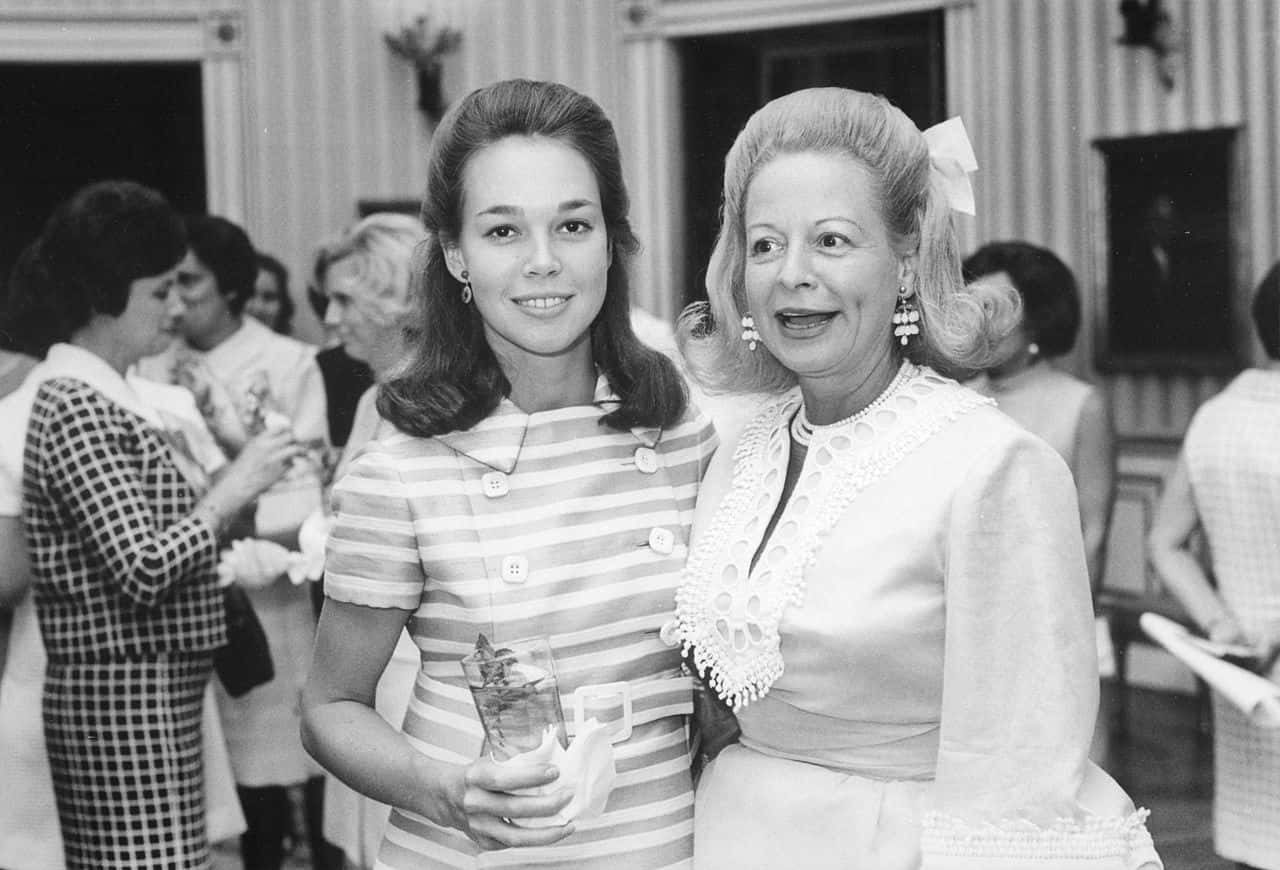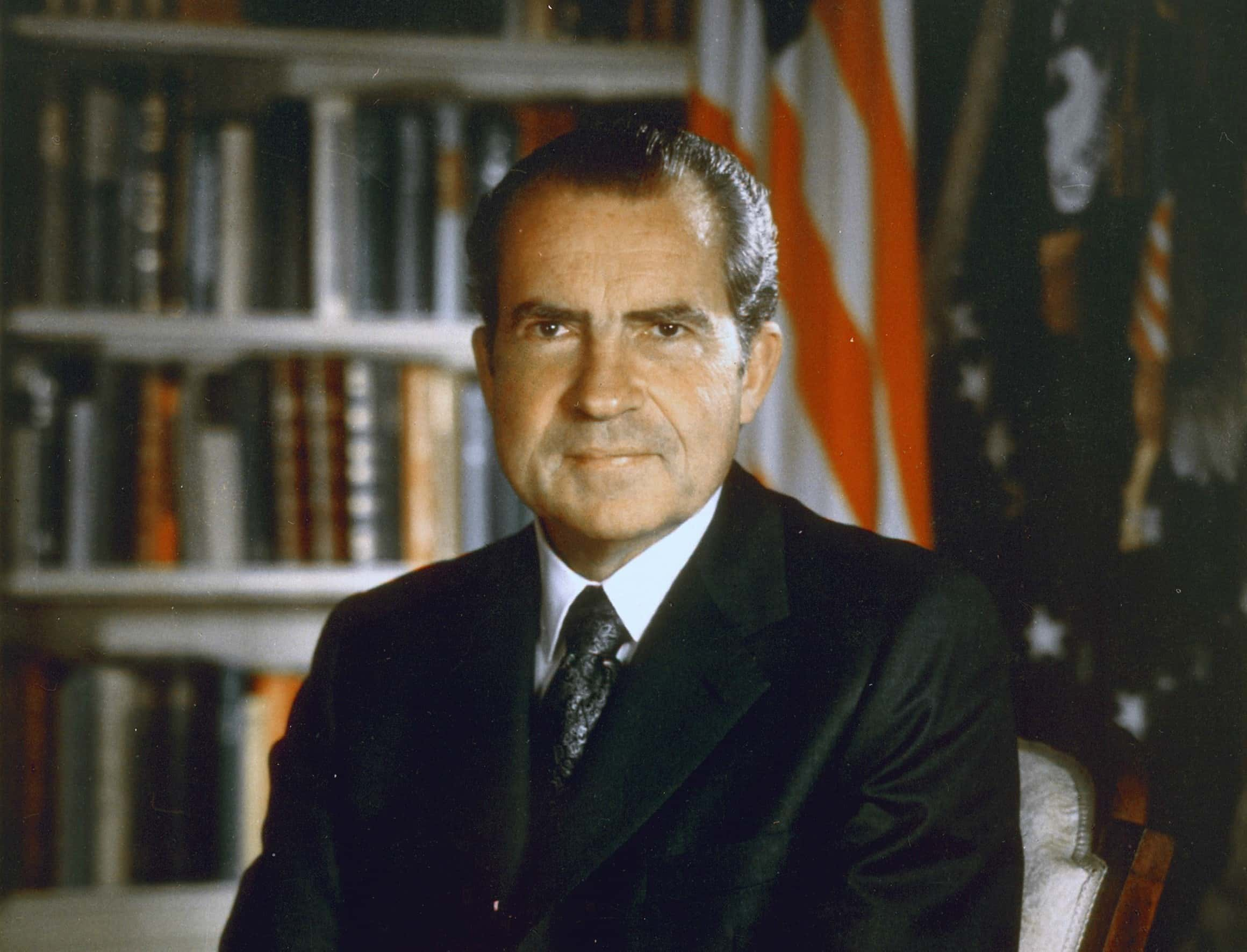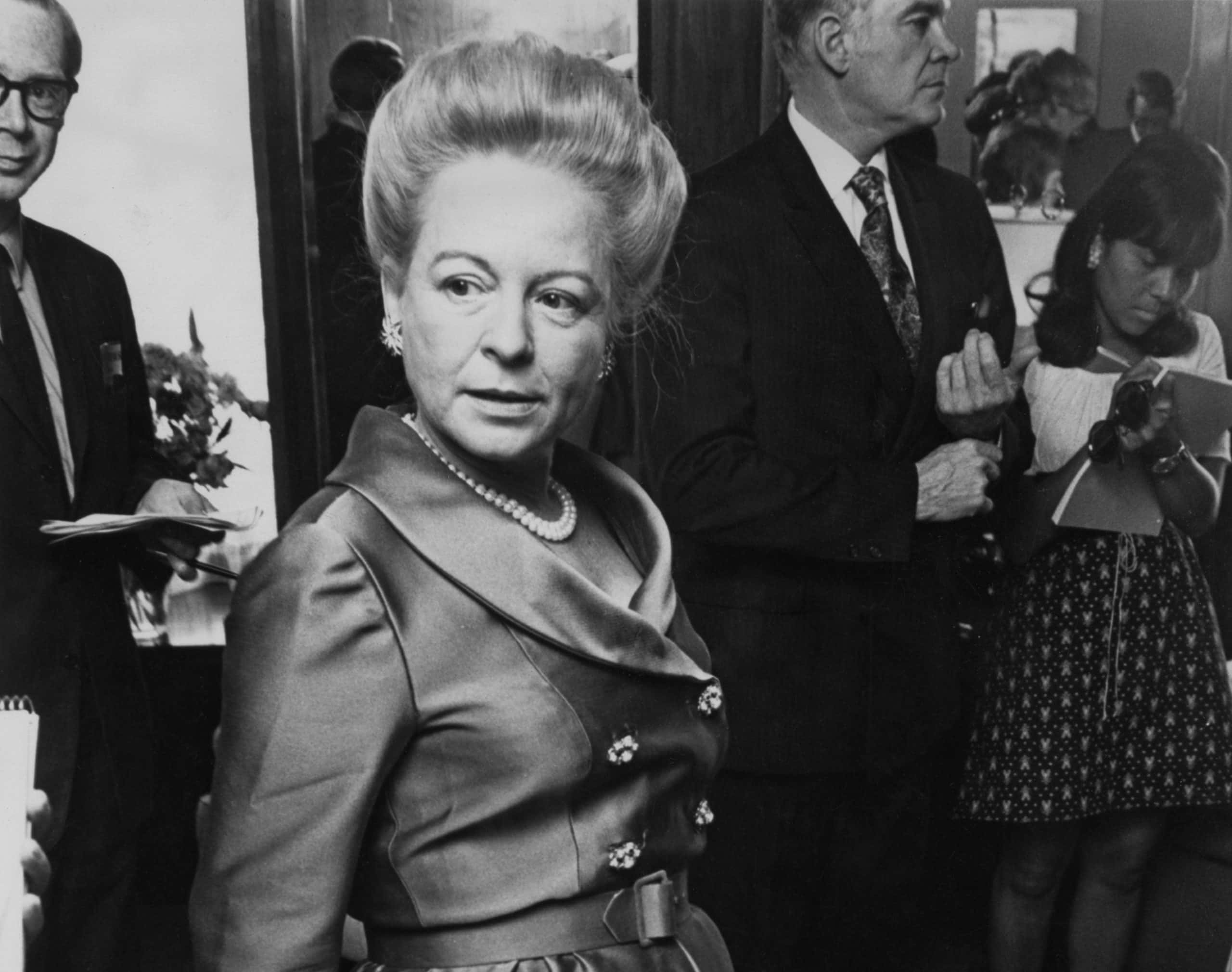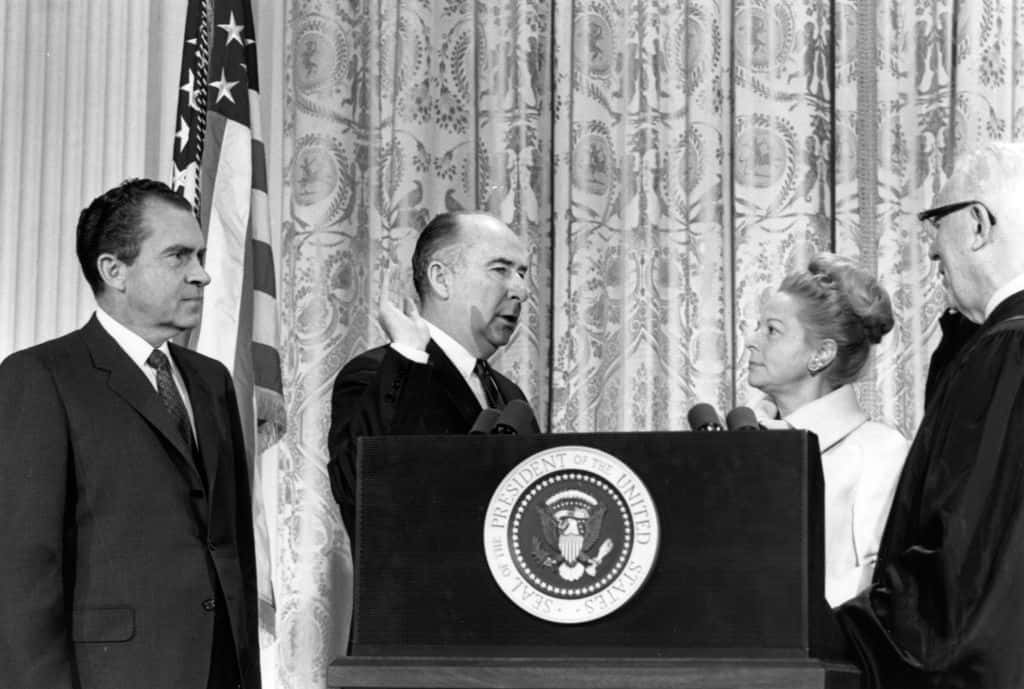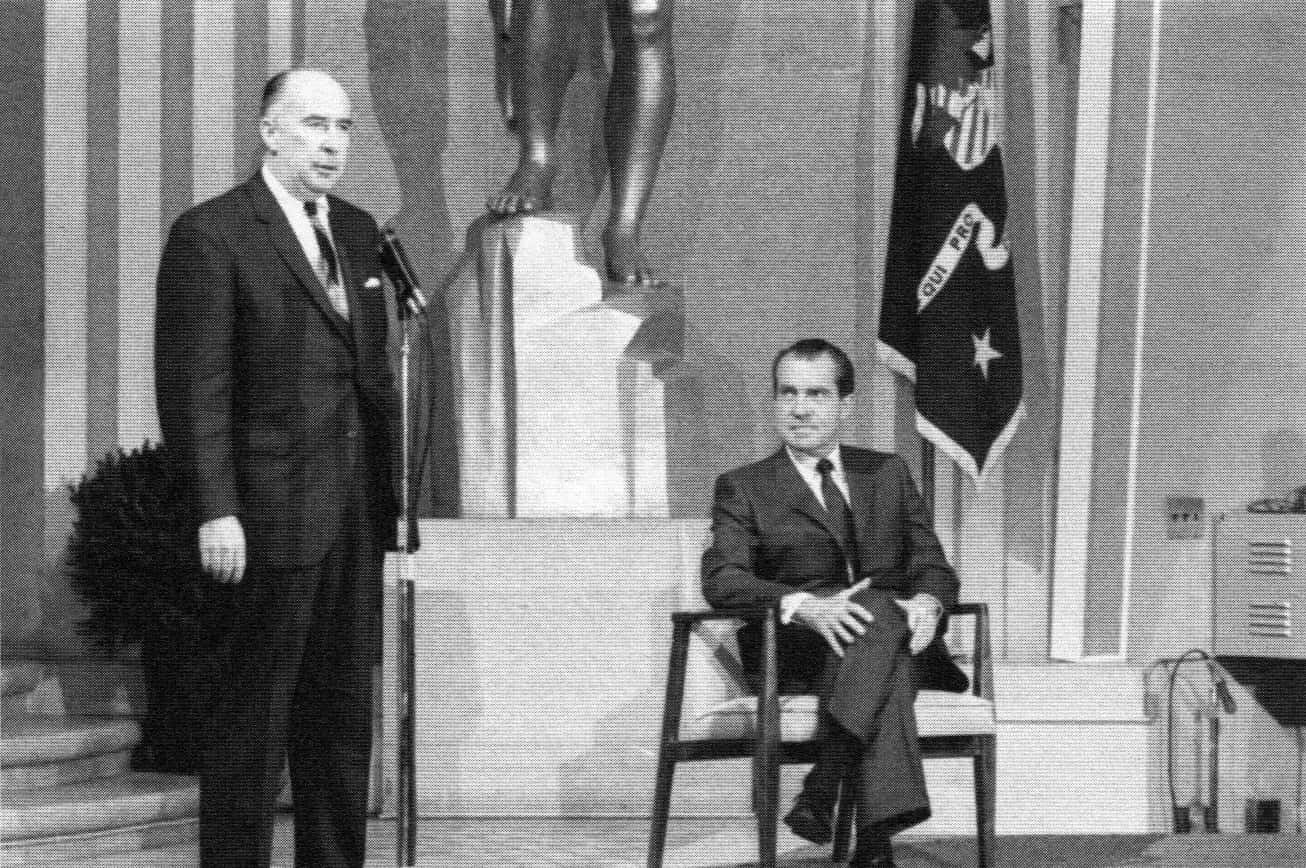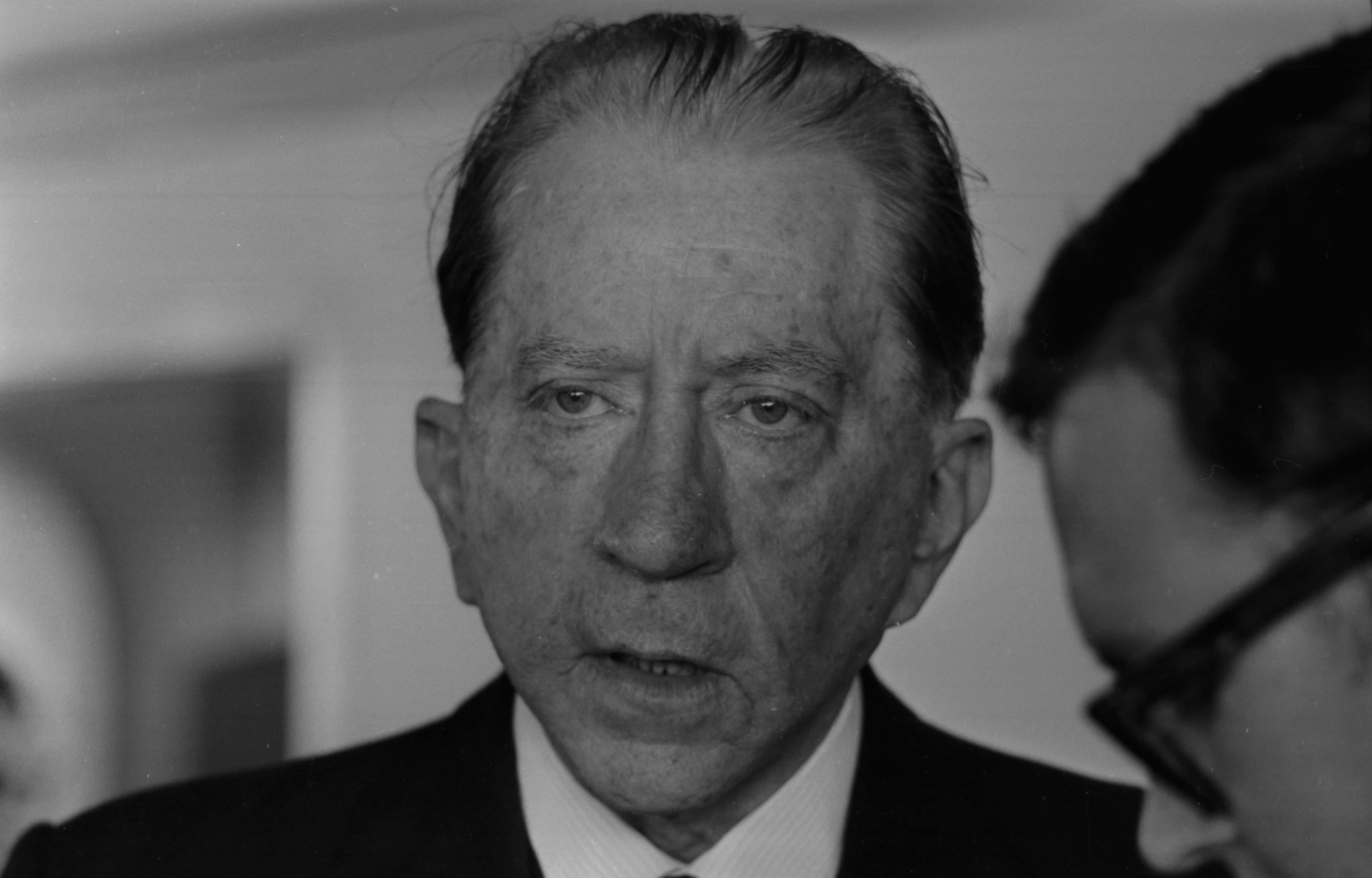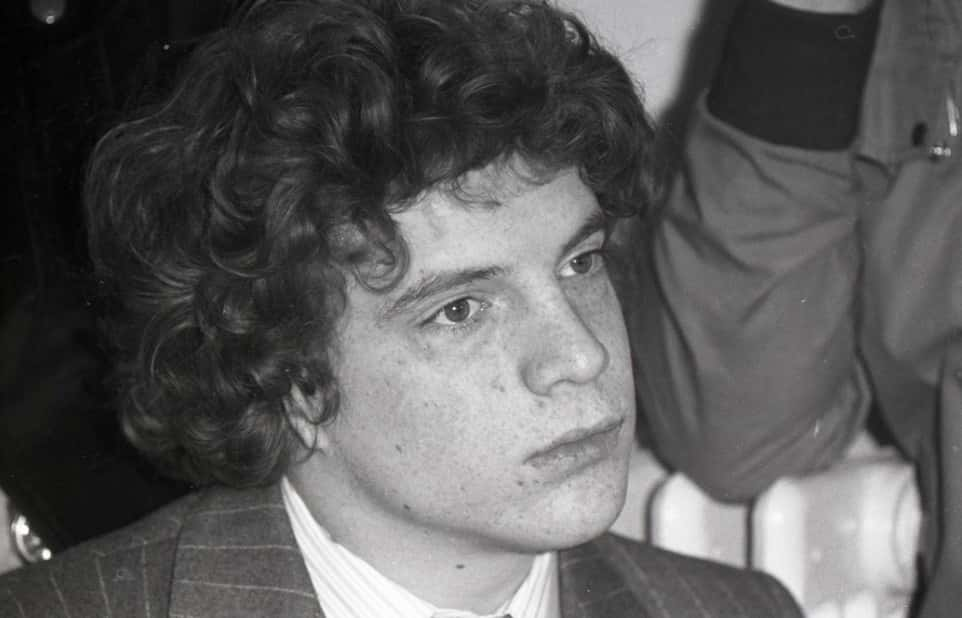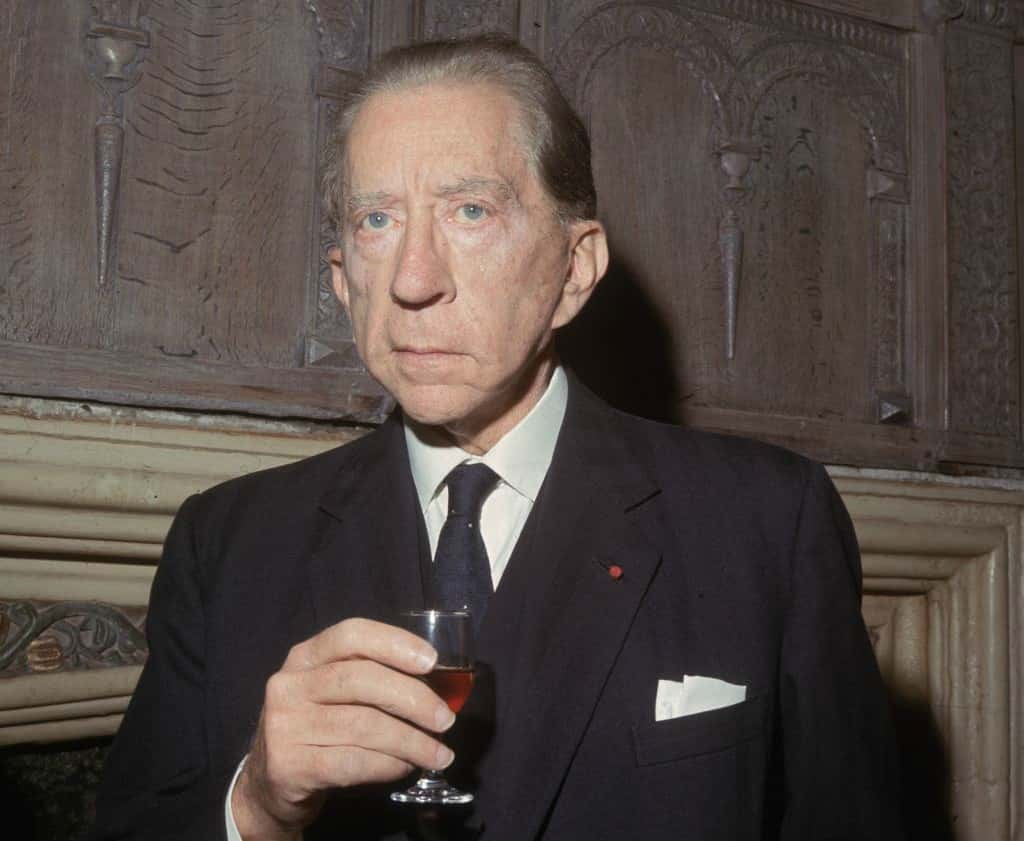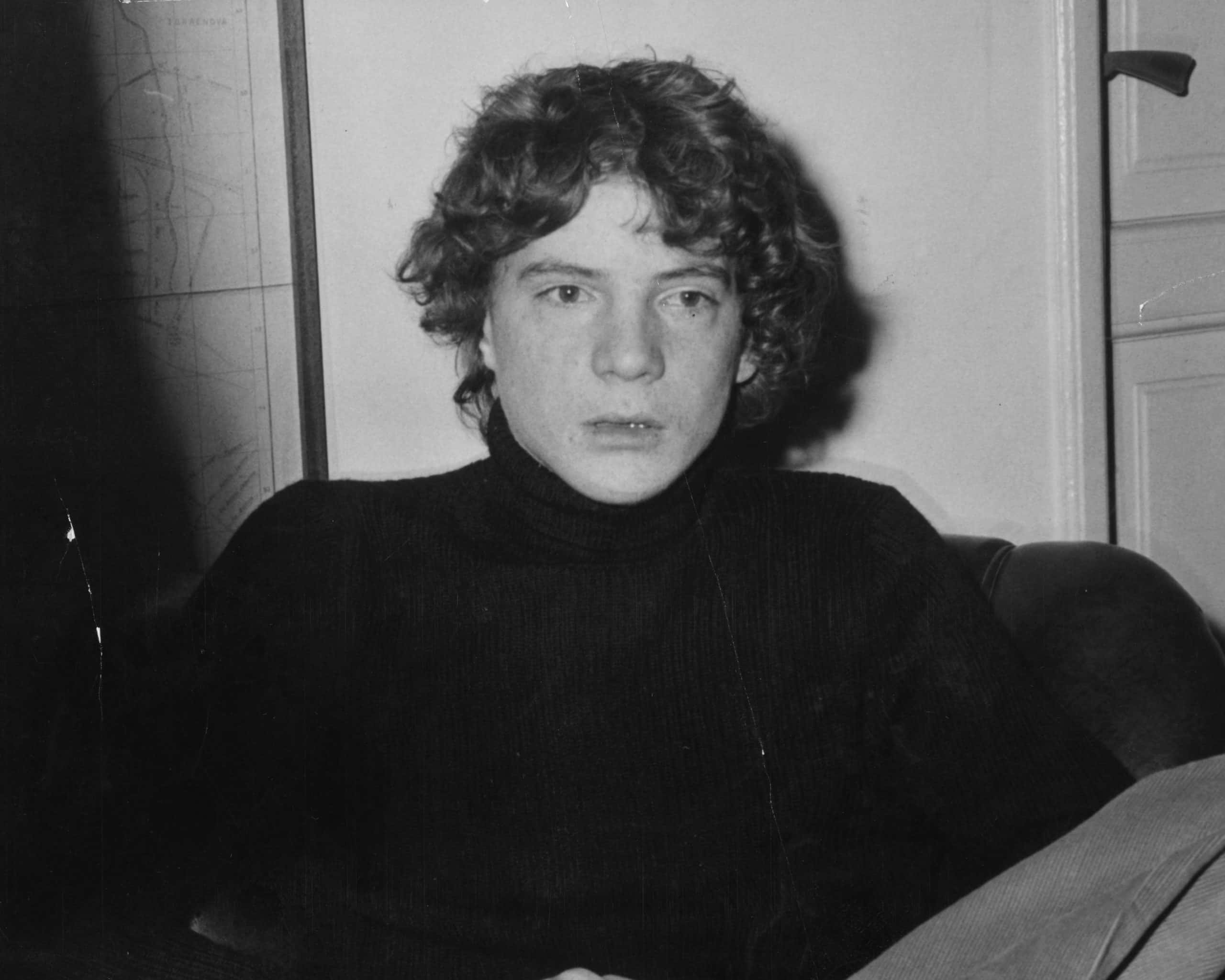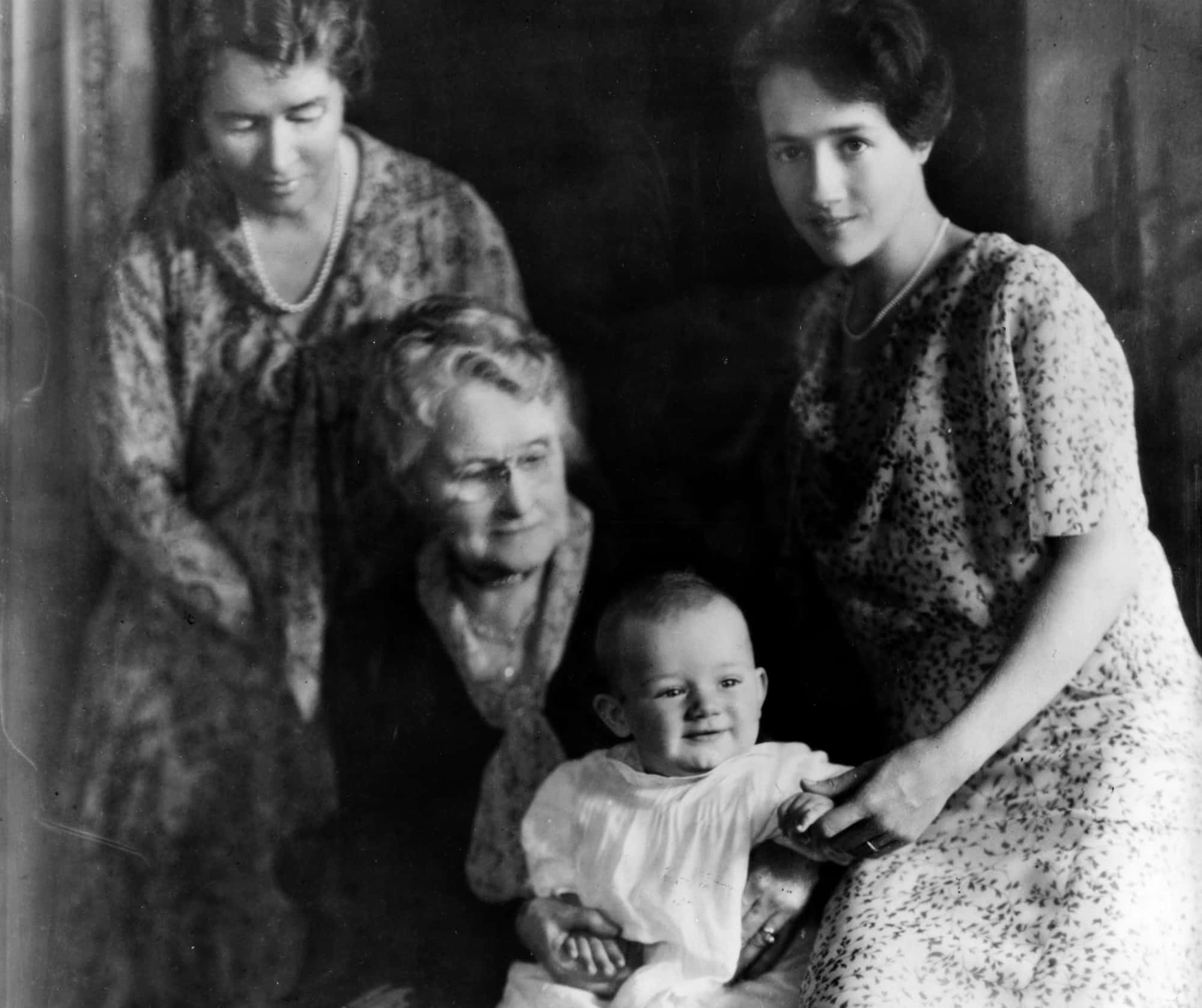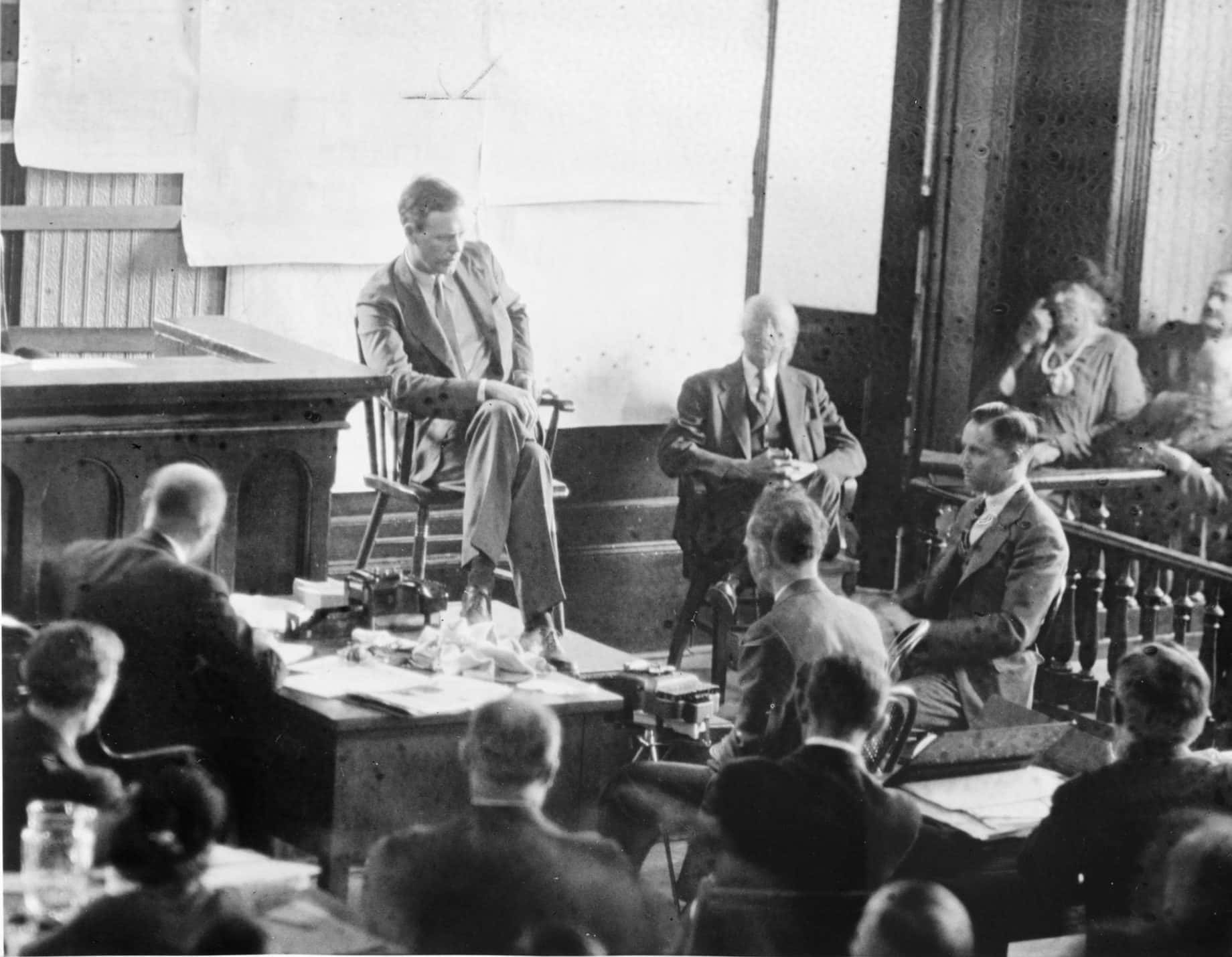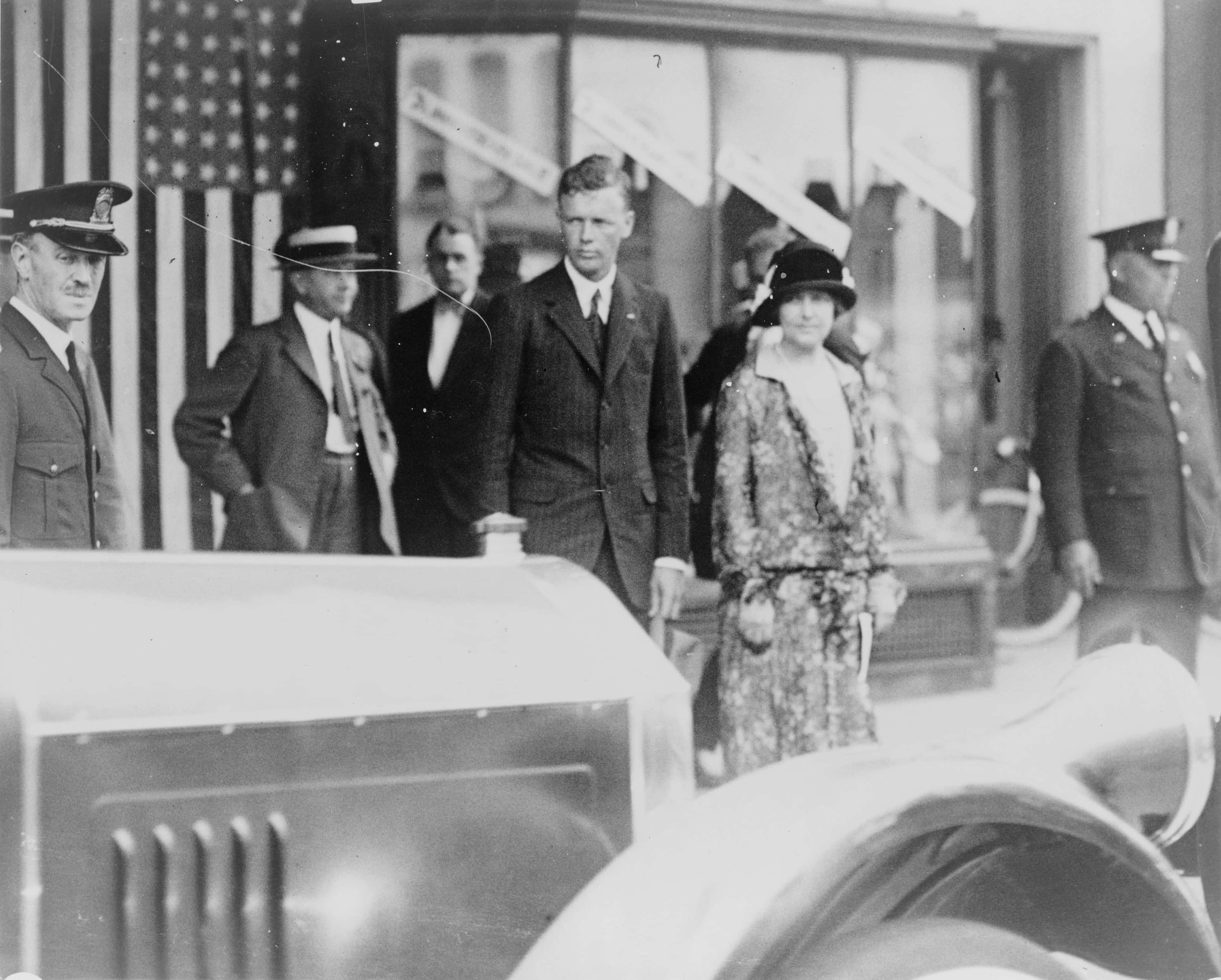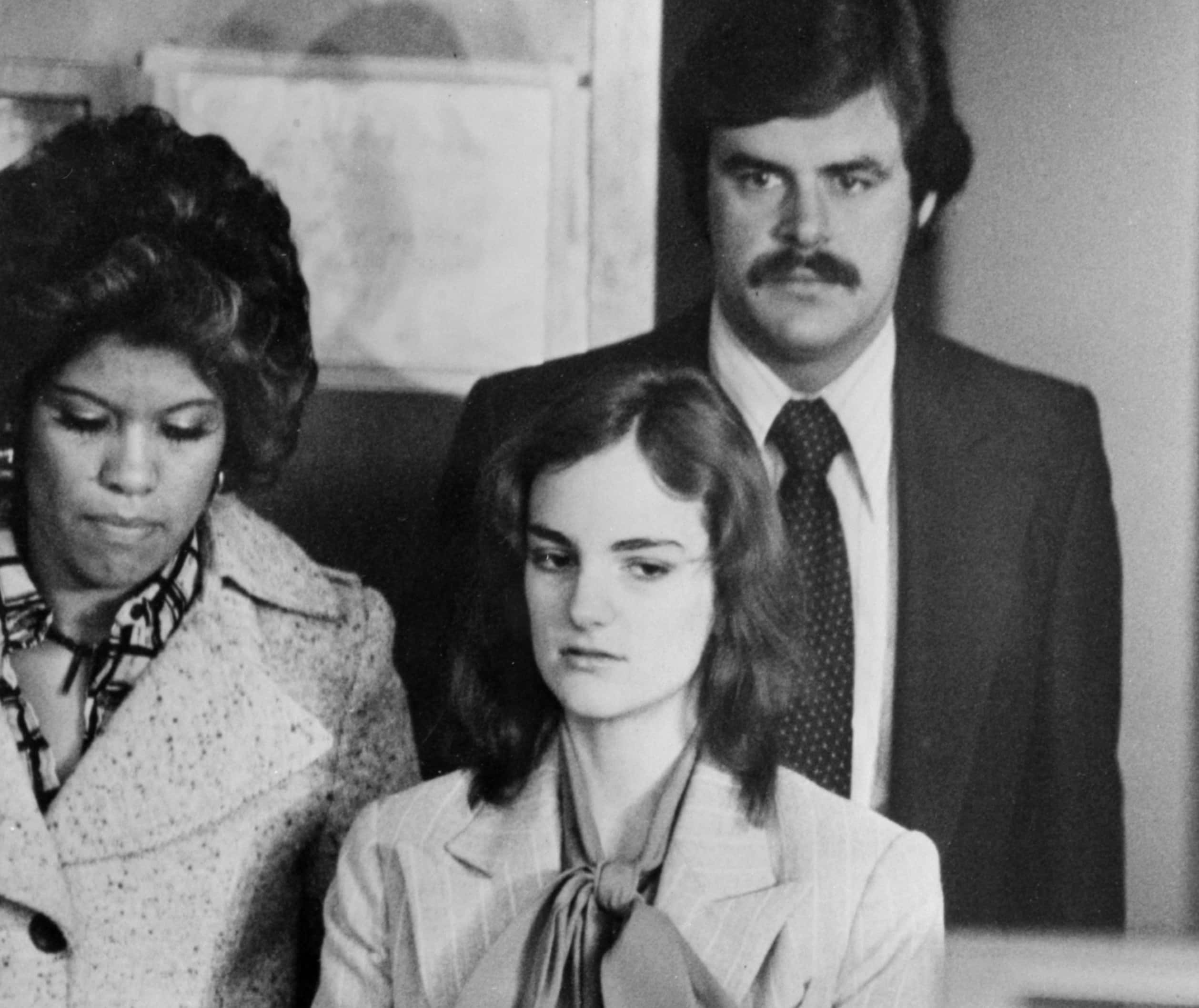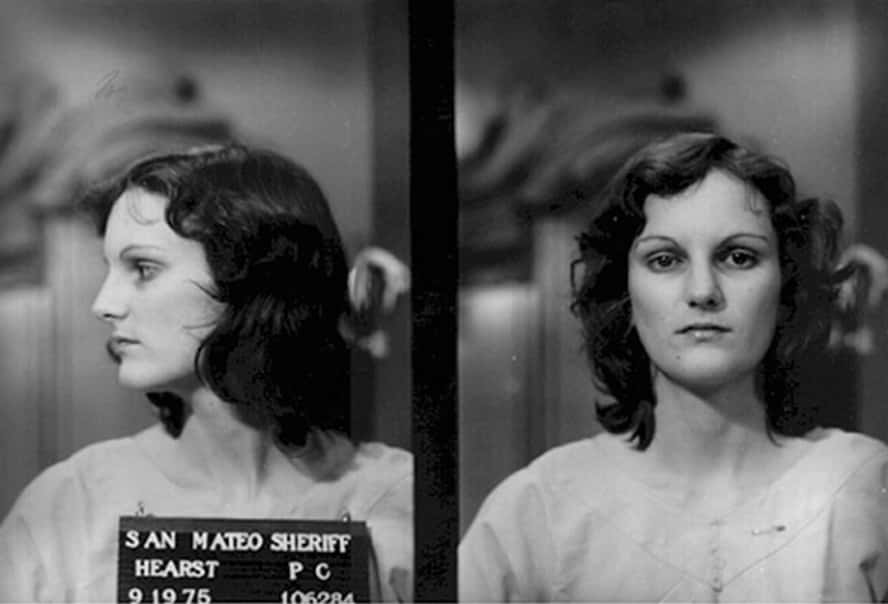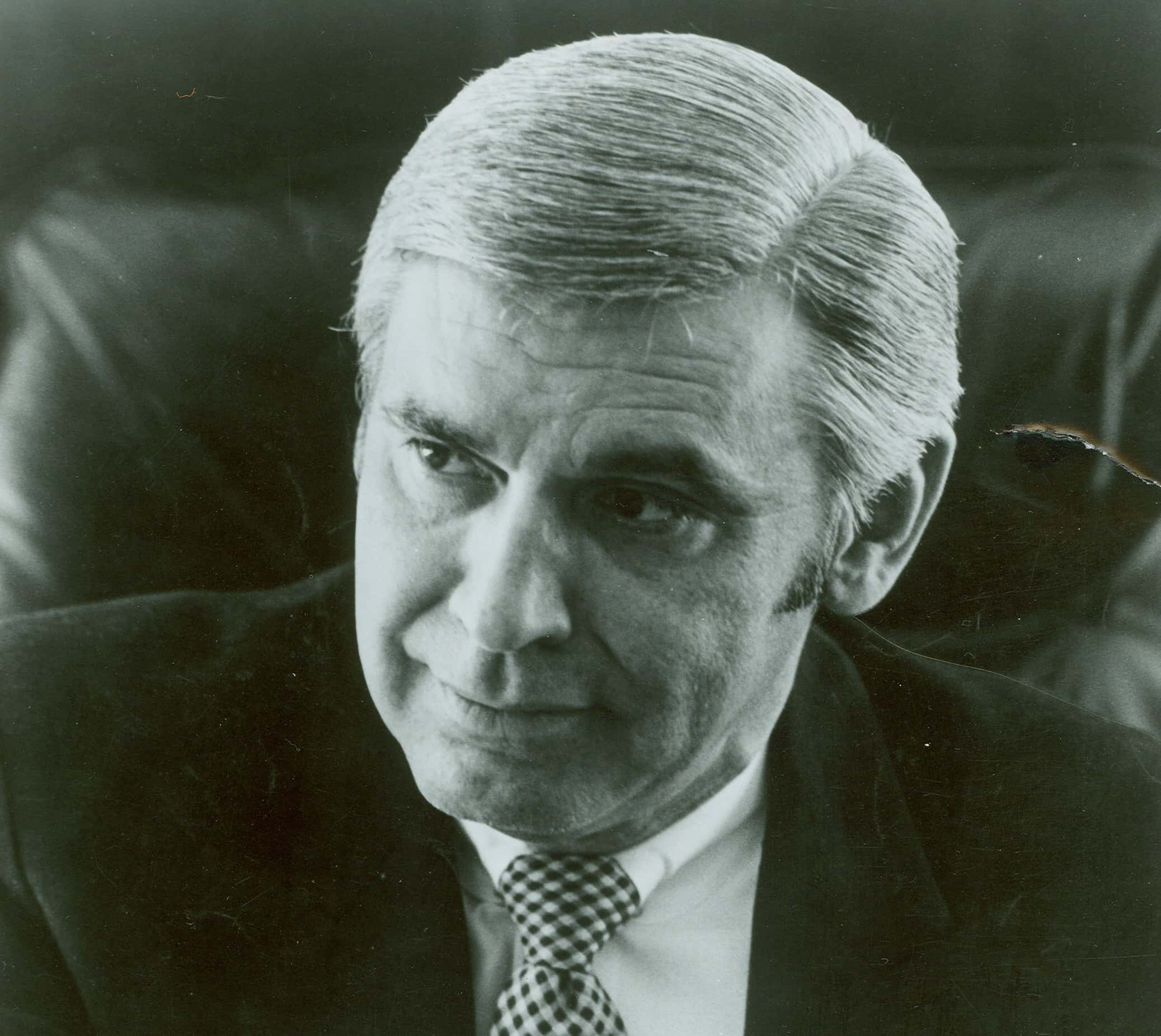Few acts are more terrifying than abductions. The idea that our loved ones, or even ourselves, can suddenly be snatched away by malevolent forces fills many people with dread and paranoia. Perhaps that’s why cases like these caught the public’s attention so much. As these facts prove, the world has seen its fair share of mysterious and shocking kidnappings—some more bizarre than others. Here are 55 alarming facts about the most chilling historical abductions and kidnappings.
1. Secrets of the Vatican
One 1857 abduction captured the attention of the entire continent of Europe, and prompted pleas from the rulers of Austria and France. Even the president of the United States got involved. So, who took six-year-old Edgardo Mortara? The answer was shocking: Edgardo was kidnapped by the Pope!

2. The Maid Knows…
Well, not the Pope personally. Edgardo was removed from his home in Bologna, Italy, by the authorities of the Papal State. But what did the Vatican want with the young son of an obscure Jewish merchant? The answer lies with the Mortara’s maid, a Catholic woman named Nina Morisi.
3. Bath Time
The Mortaras were Jewish, but like many Jewish Italian households, they employed Catholic staff. These homes were seldom free of religious tension, and the many Catholic servants held their Jewish employers in contempt and suspicion. This was the case with Nina Morisi, and when little Edgardo fell ill, she took it upon herself to “save” him.
Unbeknownst to the Mortaras, and almost certainly against their wishes, Morisi had Edgardo baptized.
4. Confessions
Not that Morisi was exactly a saint herself—she was an alleged thief and rumored to be a little too keen on men in uniforms, if you get my point. Not long after Edgardo’s baptism, the unmarried Morisi became pregnant. The Mortaras, still unaware of their son’s involuntary conversion to Catholicism, were obliged to fire her.
Morisi found a new job, but she neither forgave nor forgot her dismissal by the Mortaras. When a team of Catholic inquisitors arrived in Bologna, Morisi came to them with an alarming tale: a young Catholic boy was being raised—and deprived of his faith—by a family of Jews.
5. Just Following Orders
Under Papal law, the Catholic Church had a moral responsibility to remove from their home any child who was being denied a proper education; this, the inquisitors reasoned, included Catholic children raised in Jewish households. On June 23, 1857, a Vatican law enforcement team led by Marshal Pietri Lucidi made their way into the Mortara home.
Despite the wailing and pleading of his mother, they took little Edgardo Mortara into their custody.
6. The Gospel Truth?
The Mortara case became a cause celebre across Europe. European Jews lobbied for Edgardo’s immediate return, and newspapers published shocking allegations that Edgardo’s abduction had driven Mrs. Mortara insane. The Protestant press used the case to demonstrate the evils of Catholicism and speculated that Pope Pius IX himself had personally taken Edgardo.
When the identity of the maid-turned-baptist became public, Morisi went into hiding. The Catholic Church had its own narrative, however: that Edgardo Mortara actually embraced his Catholic faith and had no desire to return home.
7. Faith in the System
The case of Edgardo Mortara divided Italy and exposed the bigoted attitudes of many of the Catholic faithful. In 1860, the city-state of Bologna brought kidnapping charges against Bologna’s chief inquisitor, Father Pier Feletti. For his part, Feletti refused to hire a defense lawyer, saying his defense was in the hands of God.
As it turns out, God was a pretty good lawyer, as the jury ruled that Feletti was not responsible for the kidnapping, and let him off the hook.
8. Reunited, and It Feels So…Bad?
After Feletti’s acquittal, the Mortaras launched a plan to rescue their son from the Vatican. They hoped that international attention to the case would force the Vatican to release the boy, but those plans were disrupted by the Italian reunification. In a heartbreaking turn of events, when the Mortaras finally met up with their son again, he had committed fully to Catholicism and was studying to become a priest.
He not only refused to go with his family, but he also begged them to renounce Judaism.
9. Write What You Know
Edgardo Mortara did indeed go on to become a priest and an extremely popular one. He toured throughout Europe delivering sermons and lectures. His most popular sermon, by far, was an inspirational story about how even a humble Italian maid can save the soul of a child.

Sign up to our newsletter.
History’s most fascinating stories and darkest secrets, delivered to your inbox daily. Making distraction rewarding since 2017.
10. Bring Back Our Darling
Four-year-old Charley Ross became the most famous child in America when he disappeared on July 1, 1874. The story made headlines around the world, and even inspired popular songs with titles like “Bring Back Our Darling” and “I Want to See Mamma Once More". So, what became of little Charley Ross?
11. Sounds Familiar
Charley’s abduction will sound frighteningly familiar to modern readers. While Charley and his brother, Walter, were playing in their yard, two men in a carriage approached them and offered to take them to buy candy and fireworks. The boys rode all the way to Philadelphia with the men, at which point Walter got out.
Sadly, the carriage departed with Charley still inside.
12. They Couldn’t Afford It
Shortly after Charley’s disappearance, his family received a note promising Charley’s safe return in exchange for $20,000. This was the first time anyone had ever been held for ransom in the United States. The Rosses tried there best but could not come up with the money, and though his family searched for years afterward, Charley Ross was never seen again.
13. Charley Returns?
Over the years, more than 570 people claimed to be the real Charley Ross. One even petitioned a court to be legally recognized as the genuine article. According to the man’s story, he was kidnapped, abandoned in a cave, then adopted and raised under the name Gustave Blair. A court was powerless to deny Blair’s claim, but the Ross family refused to accept the outlandish story.
14. The Mystery Grows
Blair went to his grave claiming to be the real Charley Ross. Decades later, Blair’s descendants decided to settle the matter once and for all, and got a DNA test. The test showed that Gustave Blair was not Charley Ross. However, it got even more bizarre from there. He wasn’t Gustave Blair, either. It turns out “Gustave Blair” was actually a man named Nelson Miller.
Who was Nelson Miller and why did he claim to be Charley Ross? It seems that these are just more questions in the mysterious case of Charley Ross.
15. Charley for President
The kidnapping of Charley Ross became a touchstone of American popular culture, a part of the common language. Decades after the kidnapping, pranksters at the 1936 Democratic National Convention referenced the famous ransom case by making a P.A. announcement asking Charley Ross to report to the press area.
16. Good Advice
Supposedly, it was the famous case of Charley Ross which prompted parents to start advising their children, “Never take candy from strangers".
17. The Birthday Present
What did you want for your birthday this year? Was it a kidnapped child? That’s probably not what Peter the Great asked for either, but that’s exactly what he got in 1704. The boy may have once been the son of a prince in what is now Cameroon, but he had eventually been sold into slavery in the Ottoman Empire.
One of Peter’s emissaries to the Ottoman Empire thought the boy had the potential to be a good soldier and had the boy shipped to Moscow.
18. Like His Own Boy
Peter the Great felt immense sympathy for the poor child who had arrived so suddenly on his palace doorstep. Living up to his name, Peter took the boy into his home and treated him just like family. Baptized as Abraham Petrovich Gannibal, the young African boy was named Peter’s godson, and given the finest education.
By the time Abraham left school, he could speak several languages and was an expert in mathematics and geometry.
19. A Major Figure
Gannibal had quite a career. No less a figure than Voltaire called Gannibal “the dark star of the Enlightenment". And his intellect seemed to pass down through his descendants—he was the great-grandfather of the legendary Russian poet Alexander Pushkin.
20. RSVP…or Else
As the leading figure of Chicago's underworld activities, Al Capone got anything he wanted. So when Capone decided he wanted Fats Waller, the most popular jazz pianist in America, to play at his birthday party, his henchmen did the only logical thing: they kidnapped Waller at gunpoint.
21. Good Work If You Can Get It
Waller was brought to Capone’s hotel, the Hawthorne Inn, and greeted warmly by his host. Waller was treated to the most exquisite food and champagne, as mobsters exerted strong pressure on him to begin his performance and not to falter. Waller slept at the piano and spent every waking moment playing song after song, but Capone made it worth his while, tipping Waller $100 for every song he played.
Waller’s friends and family were bewildered and relieved when the missing pianist finally turned up three days later—very hungover and much, much richer.
22. The Opening Act
It’s hard enough to break into the entertainment business, imagine trying to do it when your father is one of the most popular singers in American history. Frank Sinatra Jr. had big shoes to fill, but he was doing his best. In fact, he had just finished a show at Harrah’s Lake Tahoe when he heard a chilling noise.
A stranger was knocking on his dressing room door...
23. Master Negotiator
Kidnappers Barry Keenan, Joe Amsler, and Johnny Irwin immediately got in contact with Frank Sinatra Sr. Ol’ Blue Eyes was more than willing to pay for the safe return of his son, and offered the men $1 million. Ringleader Keenan countered with…$240,000. The money would be nice, he said, but, really, he just wanted to bring the Sinatras closer together. Isn’t that sweet?
24. The Root of the Matter
Keenan had good reason to believe he was helping the Sinatras: according to Gladys Root, the defense lawyer for co-conspirator Johnny Irwin, made an utterly disturbing claim. She said that the kidnapping was a publicity stunt cooked up by Frank Sinatra Jr. to help his fledgling music career. When she was unable to provide evidence, Root was charged with perjury and obstruction of justice.
25. March of Dimes
The abduction had a chilling and distressing effect on the elder Sinatra. During the two days Frank Jr. was missing, his father began carrying rolls of dimes, just in case he needed to quickly reach the kidnappers by payphone. Even after Frank Jr. was returned, Sinatra Sr. kept up the habit, just in case it happened again.
Sinatra carried exactly ten dimes in his pocket at all times. This habit endured for all of his days, and beyond: when Sinatra's life came to an end, he was interred with ten dimes in his pocket.
26. The Gift of Gab
Spill that tea, sis! Martha Mitchell loved gossip—the juicier the better. This wouldn’t be such an issue, except for one thing. Her husband, John Mitchell, just happened to be the Attorney General for one of the most secretive presidents in US history, Richard Nixon. As fate would have it, the Mitchells’ home, in the posh Watergate Hotel, gave Martha access to all the gossip she could ever want.
27. Loose Lips Sink Ships
Martha’s favorite people to gossip with just happened to be reporters. She became such a well-known source of insider information that Time magazine named her one of the most influential women in Washington. However, Nixon’s friends in the White House had another name for her: Martha the Mouth. With the Watergate investigation slowly coming to light, Nixon made a sinister decision. It was time for that mouth to be shut.
28. Dropped Call
One evening, Martha was on the phone with Helen Thomas, a reporter for the United Press, when the call mysteriously dropped. When Thomas called back, an operator answered and explained that Martha was unable to respond. As if that weren’t fishy enough, Thomas heard something that made her blood run cold. She could make out a woman’s voice in the background saying, “You just get away from me".
With that one sentence, Martha the Mouth had managed to give her reporter friend one more big scoop.
29. In da Club
No one was able to reach Martha Mitchell, and Thomas’s story attracted major media attention. A reporter focusing on unlawful acts finally discovered Martha at her country club. She claimed that five men broke into her hotel room, and then beat and forcibly sedated her. The obviously traumatized woman was covered in bruises and scars. But who would have done such a thing, and why?
30. Executive Decision
As the Watergate Trials unfolded, several of the conspirators admitted that Martha Mitchell’s kidnapping had been planed by Nixon’s campaign committee—for a surprisingly sinister reason. Not only did he want to keep her from spilling the beans, it was also planned because Nixon was jealous of Martha’s popularity.
Who’da thunk a president could have such a fragile ego?
31. Divorce Court
The shocking revelation that the Republican Party was behind Martha’s kidnapping caused a major rift between the Mitchells, especially since John continued to support the president. Martha gladly began sharing her secrets with a new audience: The Justice Department. John Mitchell would later be found guilty of obstruction of justice, and receive a sentence of 19 months in a federal penitentiary.
That was just enough time for Martha to leave the unpleasant individual.
32. Unwelcome Guest
Kansas ne'er-do-well Jesse Dimmick, a man of much scrutiny, opted to seek shelter in the home of Jared and Lindsay Rowney. Dimmick held the Rowneys at knifepoint until he fell asleep, when the Rowneys predictably escaped. Dimmick was quickly taken into custody for both taking a life unlawfully and for kidnapping.
33. No Contest
The story doesn’t end there, however. With his trial for illicit activities concluded, the Rowneys sued Dimmick in civil court seeking $75,000 in personal and property damages. Dimmick, in a characteristically ill-advised move, decided to sue the Rowneys right back. His argument was they breached an oral contract when they turned him in.
Needless to say, the judge dismissed Dimmick’s suit.
34. On-screen Romance
Choi Eun-Hee was the biggest actress in South Korea. She also happened to be married to Shin Sang-Ok, the biggest director in South Korea. Together, they made some of South Korea’s most popular, critically acclaimed films. It was these films that caught the attention of the director of Motion Pictures and Arts division of the North Korean government.
His name? Kim Jong-Il.
35. You’re Hired!
Eager to bring North Korea’s film industry up to par with that of South Korea, Kim Jong-Il had Choi Eun-Hee abducted and brought over the border. When her husband, director Shin Sang-Ok, came looking for her, Kim Jong-Il had him taken prisoner as well.
After being kept apart for three years, Choi and Shin were reunited, and given an option: start making movies, or else.
36. It Was All an Act
Choi and Shin made a half dozen films for the North Korean government, one of which had actually been written by Kim Jong Il’s father, North Korean dictator Kim Il-Sung. The couple were given everything they needed to make films, and the gambit seemed to pay off: they even managed to win some awards at a Czechoslovakian film festival.
Whenever it came time to do press for their films, however, Choi and Shin were under direct orders to say that they defected to North Korea voluntarily.
37. Coming to America
By 1986, the couple couldn’t take it anymore. When Kim Jon Il sent them to find financiers for their next movie in Austria, Choi and Shin seized the opportunity and escaped from their captors. A reporter and a hotel worker helped sneak the couple into the US embassy, and soon they were headed for the Land of the Free.
 Wikimedia Commons, Travis Gergen
Wikimedia Commons, Travis Gergen
38. Schooled
Going to college represents a huge change in a teenager’s life. For 17-year-old Julian Hernandez, that change was bigger than he ever expected. It all began when Hernandez’s college application was returned, citing “irregularities” with his social security number.
39. Social Insecurity
Hernandez was confused—despite being a straight-A student, every single one of Hernandez’s applications was declined. Each one cited a discrepancy between his name and his social security number. Hoping, desperately, to resolve the issue, Hernandez began digging into his past. What he found was shocking.
40. Finding Himself
With the help of a guidance counselor, Hernandez was able to track down his original birth records in an unexpected place—on a database for the Center for Missing and Exploited Children! Hernandez never knew that his biological parents split when he was just a baby, or that his father, against a court order, took him to Ohio.
Julian Hernandez grew up with a fake name and a fake social security number. He was even a year older than he thought!
41. No Hard Feelings
Despite the years of secrecy, Hernandez forgave his father. In an online comment, Hernandez said “My father has done his best to deal with the mistakes he has made and he clearly regrets them. He has nurtured me exceptionally well. Without his push, I wouldn't have excelled this much in academics. Moreover, I am thoroughly clean and sober, with no trace of any transgressions on my record.
Sadly, his father can no longer say the same: Hernandez’s father pled guilty to two counts of kidnapping and several other related charges.
42. Scrooge
You don’t get rich giving money away. That’s what J. Paul Getty believed, and he had $1.2 billion to prove it. The oil tycoon was tight-fisted to an utterly twisted degree. The best example of this is the fact that when his grandson John Paul Getty III was kidnapped, Getty refused to pay the ransom.
43. Lend Me Your Ears
John Paul Getty III was 16 years old when he was kidnapped by Italian extortionists. The kidnappers kept Getty in a cave in Calabria while they awaited a payment of $17 million ($98 million today). When the elder Getty heard their asking price, his response was utterly cold-blooded. He told the kidnappers to take a hike—but it got worse from there. Even when they sent one of their captive's ears, Getty still refused to pay.
44. The Taxman
By November, worried about the wellbeing of the individual they'd captured, and puzzled by the indifference of his family, the captors had begun to negotiate their ransom. The oil baron finally agreed to pay the kidnappers $2.2 million—the maximum allowable tax deduction. For the record, the agreed-upon price was $3 million.
Getty “loaned” the additional $800,000 to his son to cover the remainder—at 4% interest!
45. Collect Call
John Paul Getty III was finally released on December 15, 1973, after six months in captivity. His first order of business was to call his grandfather and thank him for paying the ransom. The elder Getty refused to come to the phone.
46. Father of the Year
The prolonged maltreatment inflicted profound psychological harm on John Paul Getty III, leading to extremely disturbing repercussions. Getty quickly got entangled in a spiraling addiction to substances, eventually suffering a stroke that left him paralyzed for the remainder of his life. Getty’s mother moved in to care for him, but they had to sue John Paul Getty II before he would agree to cover medical costs.
47. Paying His Own Way
Clearly things were strained between the Gettys, but the old misers would have been pretty impressed with Theo Albrecht. The German billionaire was kidnapped and held captive for 17 days. He did eventually agree to pay his own $2 million ransom, but filed the ransom registered as a tax-deductible business expense.
A German court actually agreed that he was perfectly right to do so.
48. More Than Meets the Eye
Charles Lindbergh was already a wildly famous globe-trotting pilot by the 1930s. When his infant son was abducted in 1930, it made newspaper headlines all over the world—but it also exposed his family’s deepest, darkest secrets.
49. Let Me Take Care of This
The son of Charles Lindbergh and his wife Anne Morrow Lindbergh disappeared on the evening of March 1, 1932. He was just 20 months old, and a random note was found not far from his crib. The authorities jumped into action, but right from the start, the influential and wealthy Lindbergh took control of the investigation, directing suspicion towards figures involved in elaborate underworld activities.
Through an intermediary, he arranged for ransom to be paid to a man claiming to represent the group of kidnappers—but it wasn’t enough.
50. Bad as Gold
The Lindberghs heard nothing else from that group—and then, two months later, their worst nightmare came true. The body of a toddler was found and identified as the Lindbergh baby. There was great pressure on law enforcement for them to find out what happened. It took two years, but finally, one of the gold certificates from the original ransom led to a man named Richard Hauptmann.
It became known as the trial of the century. Hauptmann was tried and executed for his alleged wrongdoing—but he maintained his innocence until his last breath.
51. If I Kept Count, That’s a Quadruple Life
Remember what we said about Lindbergh’s dark secrets? Well, the whole case made a sympathetic figure out of Charles Lindbergh—but behind closed doors, his behavior was utterly vile. He was a tyrant with his children and spent little time with them. He also harbored prejudices and was a fervent supporter of the Third Reich in Germany.
On top of that, he also had multiple other paramours in Europe. To say Lindbergh lived a double life would be an understatement. He had three different women across Europe raising a total of seven of his children.
52. The Teenaged Heiress With a Target on Her Back
No list about the most outrageous kidnappings in history would be complete without the case of Patty Hearst. Hearst was a beautiful heiress who was taken from her apartment one night in 1974. Immediately, a terrifying urban guerilla group known as the Symbionese Liberation Army claimed responsibility for the unlawful act.
53. Rebellious Phase Gone Too Far
Hearst wasn't seen for two months, although her captors kept a line of contact with her family. Then, a stunning surveillance video surfaced, showing her participating in a bank heist with the same group who had captured her. When she was eventually found and stood trial for her illicit actions, she argued that she had been brainwashed by the group—though many didn't fully believe her.
Did the heiress have a secret dark side?
 John Malmin, CC BY 4.0, Wikimedia Commons
John Malmin, CC BY 4.0, Wikimedia Commons
54. Did She or Didn’t She
Hearst was found guilty and incarcerated for her involvement in the bank heist, despite the appeals of her family and attorneys. When two of the people alleged to be part of Hearst’s kidnapping went to trial, a rat was found in her bunk—but her long and surreal nightmare wasn’t over yet.
55. Wrong Place, Wrong Time
One of Hearst’s greatest advocates at the time was a congressman named Leo Ryan. He was actively gathering signatures for a petition advocating Hearst's release when he unexpectedly found himself in the center of another dreadful incident. Ryan met his end while visiting Jonestown, Guyana, amid the horrifying Peoples Temples tragedy.
Eventually, Hearst’s sentence was commuted, and since then, she’s gone on to live a relatively normal life.
Sources: 1, 2, 3, 4, 5, 6, 7, 8, 9, 10, 11, 12, 13, 14, 15, 16, 17


